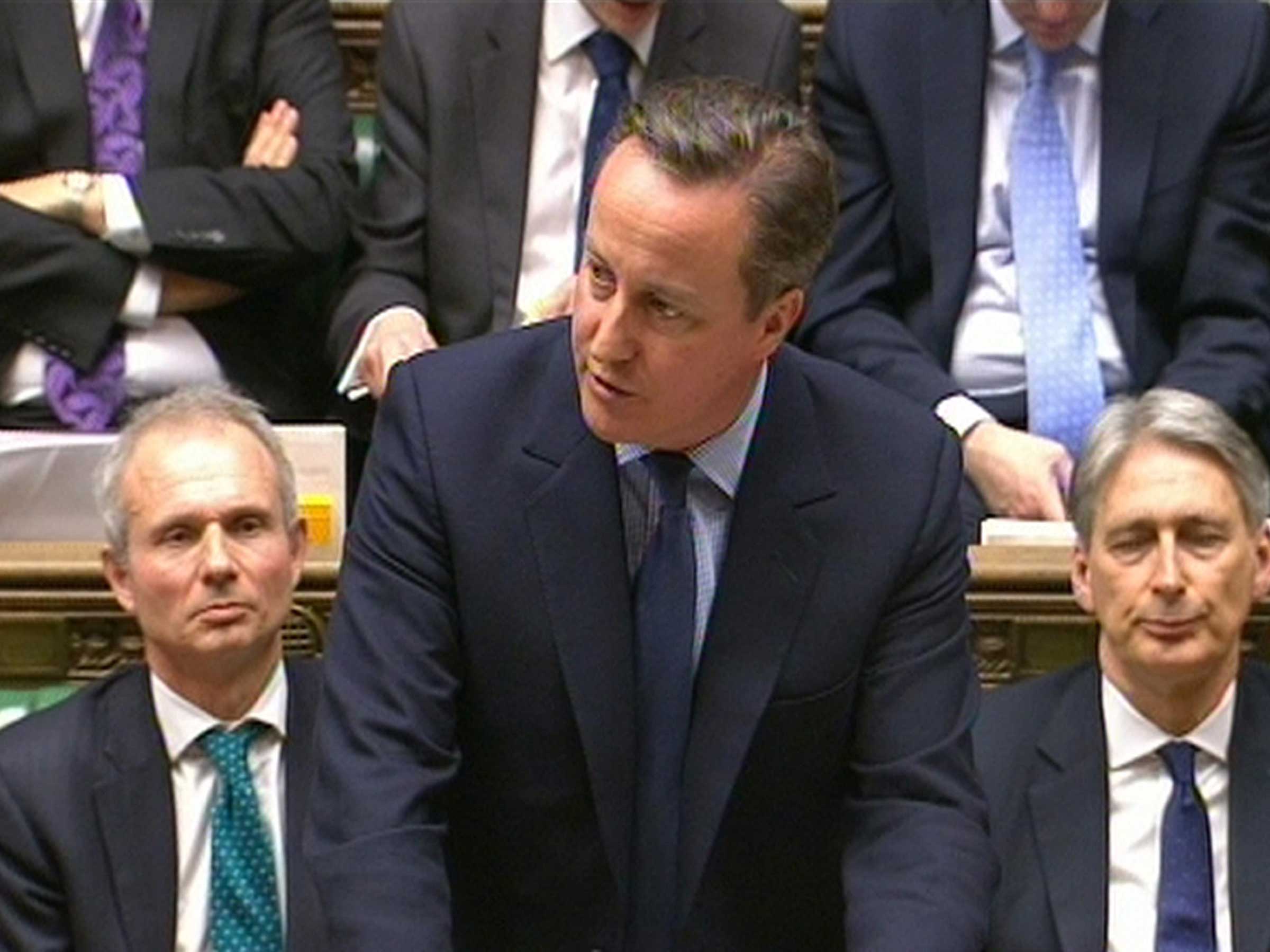EU Referendum: David Cameron to put national security at heart of pitch to remain in Europe
The Prime Minister will seek to counter Justice Secretary Michael Gove's argument that the UK will be more secure out of the EU

David Cameron will launch a new phase of the European Union referendum campaign on Monday by stressing the importance of the UK's ties with Brussels in protecting national security.
The Prime Minister's speech on Monday will mark the start of a big push by both sides in the EU debate ahead of the June 23 referendum.
Mr Cameron will make the "big, bold patriotic case" for a Remain vote, insisting that membership of the EU strengthen's the country's influence on the world stage.
The conclusion of election campaigns across England, Scotland, Wales and Northern Ireland means that the attention of politicians in both the Remain and Leave camps will now be focused on the referendum.
In his speech, Mr Cameron will dismiss claims from the Leave camp that the UK has little say in the running of the EU, claiming that British influence has shaped the way the bloc has developed.
He will also seek to counter the argument used by the Leave camp that the UK will be more secure out of the EU - a claim made by Justice Secretary Michael Gove on Saturday.
What's the European Parliament ever done for us?
Show all 5Mr Cameron will say: "I want to show that if you love this country, if you want to keep it strong in the world, and keep our people safe, our membership of the EU is one of the tools - one of the tools - that helps us do these things, like our membership of other international bodies like Nato or the UN Security Council.
"And I have just one yardstick: how best do we advance our national interest?
"Keeping our people safe at home and abroad, and moulding the world in the way that we want - more peaceful, more stable, more free, with the arteries of commerce and trade flowing freely.
"That is our national interest in a nutshell - and the question that has confronted every British prime minister since the office was created is: how best to advance Britain's interests in the circumstances of the day?
"If my experience as Prime Minister had taught me that our membership of the EU was holding Britain back or undermining our global influence, I would not hesitate to recommend we should leave.
"But my experience is the opposite.
"The reason I want Britain to stay in a reformed EU is in part because of my experience over the last six years is that it does help make our country better off, safer and stronger."
Mr Cameron will also seek to highlight the UK's influence in Brussels: "This is a Europe that Britain helped to shape.
"A continent that Britain helped liberate not once in the last century, but twice.
"We always wanted two things from the EU.
"One: the creation of a vast single market; one we thought would benefit our economy enormously and spread prosperity throughout our neighbourhood.
"And two: a Europe in which Britain helped return the nations which languished under Communism to the European fold; nations who still look to us as a friend and protector and do not want us to abandon them now.
"We've got both. We did all that."
In a further indication the security argument will form a central part of the referendum debate, two former spy chiefs argued that Brexit could hamper the UK's ability to protect against terrorism.
Lord Evans of Weardale, the former director general of MI5, and ex-MI6 chief Sir John Sawers, said the UK benefited from the exchange of information with other EU countries.
Writing in The Sunday Times, the ex-spies said: "Intelligence work today relies on the lawful and accountable use of large data sets to reveal the associations and activities of terrorists and cyber-attackers.
"The terms on which we exchange data with other European countries are set by agreement within the EU.
"As an EU member, we shape the debate, we push for what we think is the right balance between security and privacy and we benefit from the data that flows as a result."
They warned that "an agreement reached without us would probably be too restrictive for our needs" and "could undermine our ability to protect ourselves".
Sir John insisted that the pair had not co-ordinated their intervention with Downing Street, telling the Sunday Times: "We're not doing it at anybyody's behest.
"We are completely politically neutral."
PA
Subscribe to Independent Premium to bookmark this article
Want to bookmark your favourite articles and stories to read or reference later? Start your Independent Premium subscription today.

Join our commenting forum
Join thought-provoking conversations, follow other Independent readers and see their replies